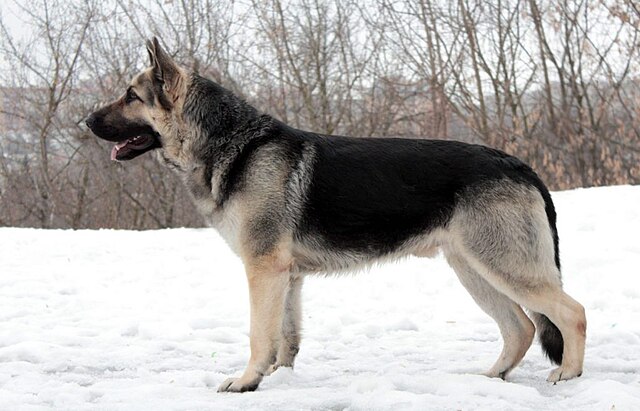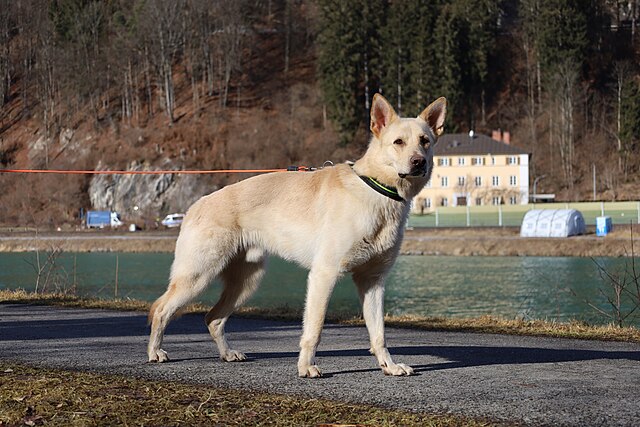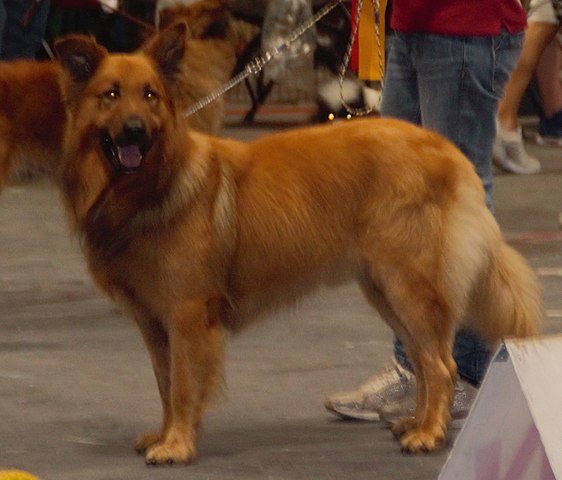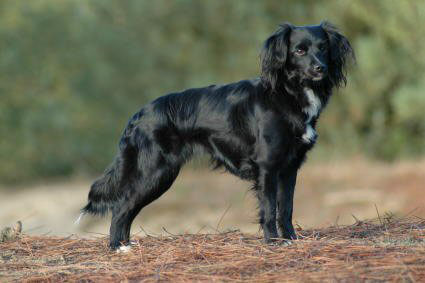The Schipperke’s name means “little captain” in Flemish. He was originally bred as a companion and watch dog on barges and canal boats of Belgium. As such, he is an active and alert little dog and takes his watchdog duties very seriously. Although he is more of an alerting dog than an actual guard dog, despite his size he will still try to defend his home and family if he feels the need. The Schipperke is naturally suspicious of strangers, although never outright nervous. There is just a touch of mischief in the breed (he will keep his owners on their toes), but he is a faithful and loyal companion.
Schipperkes should never be dainty or delicate in any way. They love adventure and would be just as fine living on a farm as they would living in a small apartment. Schips are excellent ratters and hardy explorers, and appreciate being outside quite a lot. If they do live in an apartment they would need to be given plenty of mental and physical outlets. They are also great travelers and will willingly accompany their owners anywhere, which makes it easy to provide them with the adventures that they crave! In fact, leaving a Schipperke at home might make them grumpy and upset – they would always much rather go with you than be left on their own.
The Schipperke can be a natural busybody – always wanting to know what’s going on and be in on the action! It is not so much that they are high-strung, but that they have as much energy as they have inquisitiveness. Insatiably curious, the breed has been known to get into all sorts of trouble while satisfying their inquisitive nature. It has been said that it is impossible to completely wear out a Schip. Giving them a job to do is the best way to channel their energy into something productive! Today Schipperkes are used in search and rescue, as hearing dogs, bomb-sniffing dogs and drug-sniffing dogs. They are also adept at herding, ratting, agility, rally… the list goes on and on!
Schips are gentle with children, even toddlers. Although it is best to introduce the dog to children while he is still a puppy, the Schipperke can learn to get along with kids even if he is older. Supervision is obviously required, as with all breeds. The Schip also gets along great with other animals (dogs, horses, cats, cows, birds, etc.). Normally, the only animals that a Schip doesn’t get along with are gophers, squirrels and outdoor rodents – they will attempt to dig up your yard in search of these critters! 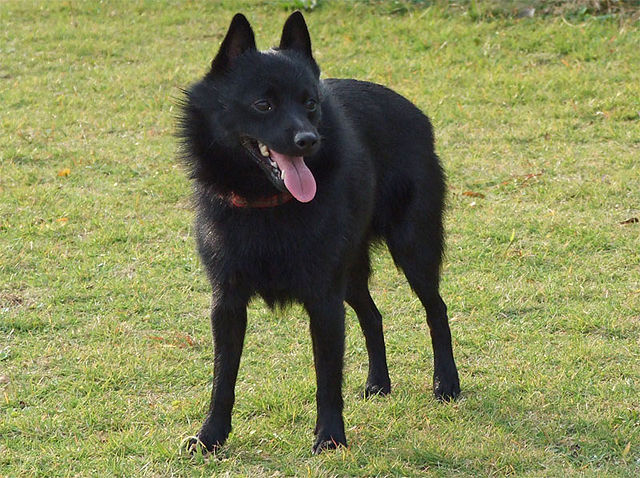
As with any breed, there are some drawbacks to owning a Schipperke. Willful and stubborn, they are known to be difficult to housebreak. They are also keen to bolt through open doors, especially if they see something interesting to check out. Finally, they are not quiet dogs – you will be reminded that your Schipperke has a voice throughout the day! The best way to work through these problems is with a good obedience program that you practice on a regular basis. Although intelligent, Schipperkes are not easy dogs to train because of their very independent nature. Even still it is very important to introduce obedience from a young age – before problems get out of hand.
This is a very healthy, long-lived breed. 12-16 years is considered average, but there are accounts of some Schips living over 20 years! It is important to note that there is a genetic defect in some members of the breed called MPS-IIIB, but this avoidable by purchasing a puppy from a reputable breeder who does health tests. MPS-IIIB must be carried by both the sire (father) and dam (mother), and each dog can be checked for this defect before being bred.
The Schipperke needs a securely fenced yard, as his curiousity makes him quite the wanderer. He needs to be protected from walking out into the middle of the street or otherwise endangering himself. He can also be an escape artist, so make sure that the fence is very secure!
